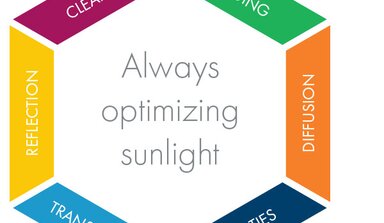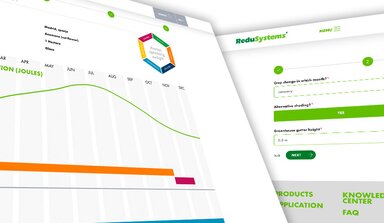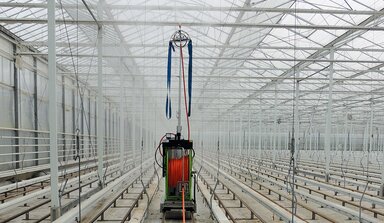Almost 25% increase in production thanks to AntiCondens
All plastic greenhouses in Dagestan near the Caspian Sea face the same issue: droplets of condensation absorb light and promote growth of pathogens. Tomato growing companies have found a solution in the form of AntiCondens for plastic.
The summers in Dagestan are hot and dry. The winters are rainy and windy. Condensation poses a major problem, particularly in winter. “The thick droplets absorb the light. And when it is windy the droplets fall on the crop. This has an impact on production. The plants do not receive enough light and the flowers do not produce seed properly due to the humidity. The high humidity also causes diseases”, according to Ms. Ludmila.
She is a growth consultant for, among others, a company near the capital Makhachkala. This company grows 2 hectares of tomatoes of the Tiwai variety.
Condensation film is favorable
During the winter period, the plastic is usually covered by condensation. Droplets of condensation can absorb a lot of light. Whether or not this happens depends on the type of condensation. Large droplets inhibit the incidence of light. However, a condensation film allows the light to pass through effectively. AntiCondens by ReduSystems produces such a condensation film. “They have been using it annually since 2020 and apply it in August to a dry and clean greenhouse roof. The effect is phenomenal. AntiCondens stopped the production loss, which could be as high as 25%. The growers are very satisfied with the result: the improved production and improved quality”, explains the growth consultant.
It also creates a much more pleasant environment for employees to work in. “In the past, you would regularly hear screams when the employees were given a cold shower by falling condensation droplets.”
Light gain measured
The tomato growing company Avadan, near Derbent in the south of Dagestan, also has good experience with AntiCondens. This company grows three hectares of tomatoes of the Tiwai variety in full soil. The nearby Caspian Sea has a major effect on the climate. The summer brings low humidity and high temperatures. The winter temperatures vary on average between +3° C and -5° C. The humidity in the greenhouse is high during winter.
“Our production runs from the autumn until the next summer. We applied AntiCondens in the late autumn of 2021, when the greenhouse was empty. We were given this advice by other growers, who had good experience with improved light incidence thanks to AntiCondens”, explains growth manager Nizam Azaev.
“We also wanted to solve the problem of the falling droplets. They have a negative effect on the plants and the health of the crop”, he explains.
Azaev is very happy with the effect. “In the winter we need all the sunlight that we can get. Measurements show that we gained 15 to 20% light by using AntiCondens. The impact of the falling droplets has also been significantly reduced.”
He is not willing to draw any firm conclusions about the exact effect on production. After all, it is hard to compare one year to another. “However, we assume that the growth, seeding and harvest will improve significantly thanks to the coating. That is why we will be applying AntiCondens again in future, as soon as it is necessary”, he concludes.


